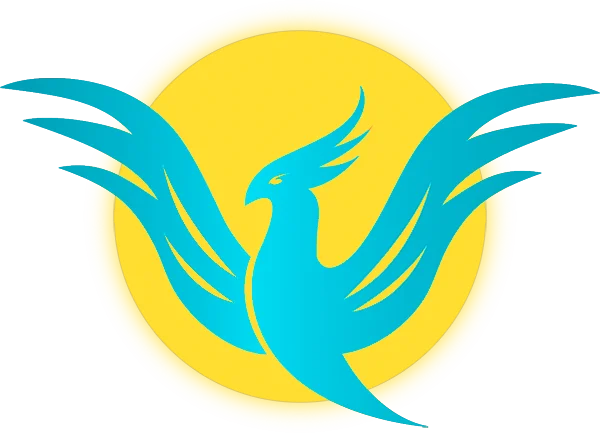Once he appears in the lives of many of us, but not all the way through the powerful merger of the infant and his mother, begins to appear the image of the father: another, sharp, short-time, subtle, power, goes on idyllic, disturbing, aggressive, protective. Image that for many is lost, for many, is absent, but such that even its complete absence manifests itself in our lives an unquenchable thirst and eternal longing - the image of the FATHER.
For the daughters, it becomes a true first lover and destroyer of dreams, relationships which largely lay their future happiness in love or, conversely, generate their a dumb question, why do I not connect with men. For them he is always a injury, either because the love for him is no response or this response violates a taboo, or it turns into an unattainable ideal that prevents the relationship with a man, a thirst which leads other women in a bed in the arms of many. The father is a loving God, or devouring monster is the rapist, the cold idol-a graven image or a black hole in the heart. When the father is negligible, the daughter feels a complete nonentity, empty rubbish, which is no one's business, when he gets in front of her submissive mother daughter heart shrinks to the size of the spines of the thistles, then to a long time or never to let more into your life man, fearing him and hating as his father. When the father is strong and rich, it starts looking for the same man, or identificeres with him, it will make a docile husband is henpecked. When the father is the protector, when he is generous and attentive, sensitive and responsive, always there when she can easily believe in God the father, if he was drunk secretly rapes her or beats with impunity, she becomes a Devil worshiper. The father living with a dead soul produces a dead God, God, which is not, and never was.
Boys who grew up without a father, sad story. Where to go with the longing for it, with their perpetual anxiety about their weakness and doom? Deprived of a father's blessing, they spend their lives looking for him everywhere: the more powerful men who are lucky enough to be in public and state institutions, army discipline, the Golden calf or the monastery. Sometimes this craving leads them to bed with men, they often choose their mother as their only lover, leaving no chance for other women. As someone once begins to sculpt the father in himself, but in the best case, a strong man because fatherhood and courage are not one and the same. Fatherless plays into the hands of tyrants and power hungry, any kind of fathers of the nation and the great helmsman, turning the man-of the citizen subservient and helpful dog who loves his master, and willing to do anything for a bone from his table. The weaker the image of the real father in a boy's life, the more power over him find father-substitutes and destructive dark gods. When the father is, but he's greedy for all except self-love, when he holds his son for the executor, for their characterless continued, his sole life's appendage, he becomes the castrating, depriving the son of the chance to choose its own path. And how many fathers cursing, throwing, pathetic!?
we know From history that once fathers were powerful. They determined the development of culture and civilization, had a large family, absolute power: the earthly and the spiritual. If you were born without a father, became rootless, cursed orphan, because nobody put you in the right time at the table with men. But you could find his father in the sovereign, the priest, the teacher. The great Patriarchal figures of the past look down on us with prints and portraits of their commandments and the Epistles we find in the books, their symbols are everywhere around us. But where the fathers dwell in these days? Where are our fathers? Where are the fathers of Nations? Where are the spiritual fathers? Where fathers are in heaven or underground? Maybe this is the man who calls himself my father, but all the time lost at work and gloomy, not cheerful with my mother? Maybe it's a Church Patriarch, who speaks the truths, which have no place in modern life? Maybe this is a President who loves his subjects and his absolute power? Maybe it's a bearded God living on a cloud, which it is impossible to see a mere mortal? Maybe it's my boss who I work for and earn loot, and on which depends the payment of my credits? Maybe my dad turned into little pieces of green paper with portraits of unknown figures, who lived in the eighteenth century overseas, or maybe he's one of the uncles that the paper prints?
I consider myself the luckiest man in the world because I was the father. I had to go a certain way to realize how much I like him and that I more be the son of his father. I took my, now, extensive experience with clients of men, that with all my heart to feel his love to his father, realizing how important it is that I had it and how much, in fact, he gave me. He was alive for 14 years, but he's always with me when I see the tears of men and boys, whose fathers were not. They will have to seek the father in himself or in the outside, but I know that whatever they find, will still be not real, will be a reflection, a phantom, idea and way. My father is always with me when I see men whose fathers didn't love them, humiliated, suppressed, rejected, lied to, disappointed, abandoned, beaten, raped, I can see how they are hurt, ashamed, I can feel how much anger and aggression as hopelessness and despair bring them memories of the gods who failed them and rejected.
At the beginning of his wonderful book "Father" Luigi Zoja, our contemporary, Italian Jungian analyst, tells the following:
"Jacob was a merchant of fabrics and has gone down in history as the father of Sigmund, the Freud.
One Saturday Jacob walked in Freiberg. He was well dressed in a new fur hat. On one of the turns he collided with another passerby. It was an awkward situation: the sidewalks in those days were narrow, so were only allowed one passer-by not to step in the mud. Jacob tried to take the next step, but timidly, because he had no domestic right of priority. His opponent was faster, and apparently inspired confidence in his superiority, he tore off Jacob's hat and threw it into the mud, shouting: "Down from the sidewalk, Jew!"
Telling this episode of son, Jacob stops. But the little Sigmund would continue, because from that moment the story became interesting: "And you, what did?" His father answered quietly: "Off the sidewalk and picked up the hat."
according to Jones, the chief biographer of Sigmund Freud, this fact was important for the formation of the character of the founder of psychoanalysis. The lack of heroism in man, which until then had been for him an absolute example to follow, hit like a heavy hammer in his consciousness. And decided its future."
I also think now about one seven year old boy, who is now forty, and who returned again and again in their thoughts to the same story: he stands on a table by the window, shifting from foot to foot and looking out the window, seeing his tall, handsome, athletic father, who goes for a morning jog bare-chested. He does it many times: looks at the retreating back of his father, each time expecting that he'd turn and take him with you, put on the neck, bestows his masculine energy and will give a chance for future success. But the father never looked back, never, never took it with him. Uh, how little is necessary: just look, just take the hand, just hold. But how much it means for my son! In this gesture the father lives and fatherhood, he turns to the man who gave me life, turns spouse my mother my personal God that will be with me a lifetime.
"the Man, which in nature can give life, and can only cum like an animal, can make the jump up to a spiritual dimension: he thinks about his son and creates ceremonies that make a specific, publicly divided and irreversible this creative idea. If the coming of the father corresponded to the project that can evolve over time, that blessing, uplifting (in hand), initiation is a father's project, facing the son: the second release of sperm, spiritual" (p. Zoya)
(Moscow, March 2014)


